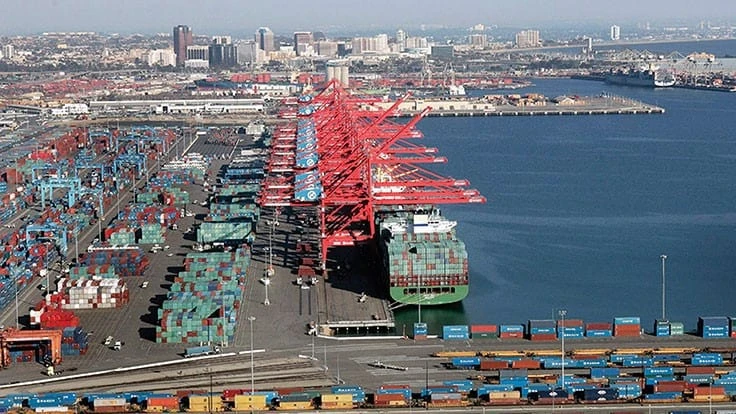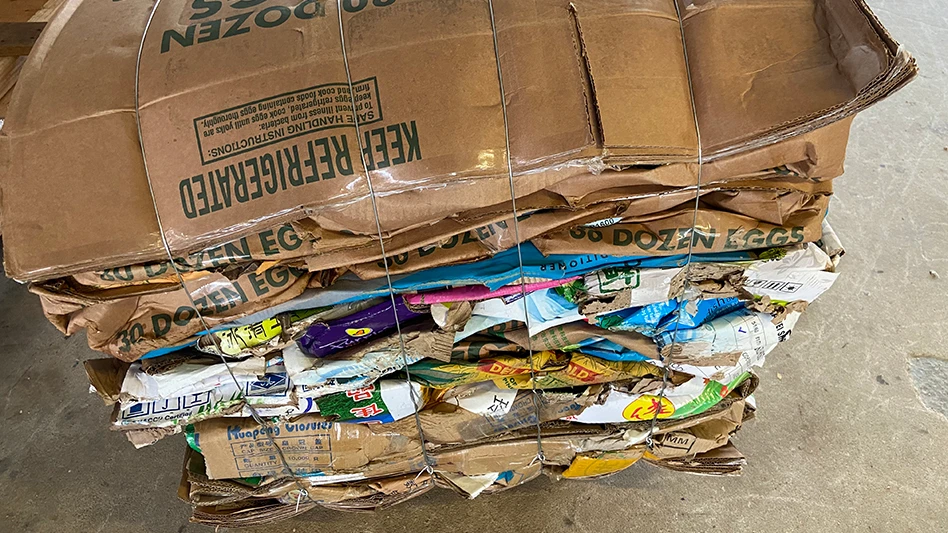
Photo courtesy of the Port of Long Beach
The Ocean Shipping Reform Act, bipartisan legislation introduced by U.S. Sens. Amy Klobuchar (a Minnesota Democrat) and John Thune (a South Dakota Republican) designed to help fix supply chains and ease shipping backlogs, unanimously passed the U.S. Senate March 31.
March 29, the U.S. House of Representatives passed its version of the bill as part of a broader legislative package that authorizes Coast Guard programs, marking the third time the House has passed the legislation. The House initially passed the companion bill in December of last year as a stand-alone measure and as a part of its version of a China competitiveness bill in February, the America COMPETES Act of 2022.
While both bills grant the FMC the authority to regulate ocean carriers, the House and Senate bills have differences that will have to be reconciled.
“Congestion at ports and increased shipping costs pose unique challenges for U.S. exporters, who have seen the price of shipping containers increase four-fold in just two years, raising costs for consumers and hurting our businesses,” Klobuchar says in a news release announcing the bill’s passage in the Senate. “Meanwhile, ocean carriers that are mostly foreign-owned have reported record profits. This legislation will help American exporters get their goods to market in a timely manner for a fair price. By passing this bill, we are one step closer to leveling the playing field for American manufacturers and consumers.”
“South Dakota producers expect that ocean carriers operate under fair and transparent rules,” Thune ads. “I’m glad the Senate unanimously passed this important legislation that would level the playing field for American farmers, exporters and consumers by making it harder for ocean carriers to unreasonably refuse goods that are ready to export at U.S. ports. Especially with record inflation in prices of goods, this legislation would also benefit consumers by promoting the fluidity and efficiency of the supply chain.”
The senators say the Ocean Shipping Reform Act will level the playing field for American exporters by making it harder for ocean carriers to unreasonably refuse goods that are ready to export at ports.
Prior to the vote, Klobuchar called on her colleagues to pass the legislation, highlighting the significant supply chain disruptions and vulnerabilities U.S. exporters face as international ocean carriers unreasonably decline shipping opportunities while reaping record profits. Thune also spoke on the Senate floor prior to the vote, calling for the bill’s swift passage and noting the long-term positive changes that would benefit exporters, importer, and consumers.
The legislation has been endorsed by the American Association of Port Authorities, Washington, which represents more than 130 port authorities across North and South America, as well as by the Agriculture Transportation Coalition (AgTC), the National Retail Federation, the American Trucking Association, the California Association of Port Authorities, the Minnesota Soybean Growers Association and the Minnesota Corn Growers Association.
The bill’s sponsors in the Senate say the Ocean Shipping Reform Act will:
- require ocean carriers to certify that late fees—known in maritime parlance as “detention and demurrage” charges—comply with federal regulations or face penalties;
- shift burden of proof regarding the reasonableness of “detention or demurrage” charges from the invoiced party to the ocean carrier;
- prohibit ocean carriers from unreasonably declining shipping opportunities for U.S. exports, as determined by the Federal Maritime Commission (FMC) in new required rulemaking;
- require ocean common carriers to report to the FMC each calendar quarter on total import/export tonnage and 20-foot equivalent units (loaded/empty) per vessel that makes port in the United States;
- authorize the FMC to self-initiate investigations of ocean common carrier’s business practices and apply enforcement measures, as appropriate; and
- establish new authority for the FMC to register shipping exchanges.
Latest from Recycling Today
- Acerinox names new North American Stainless CEO
- Greenwave closes 2024 books with red ink
- Steel Dynamics nets $217 million on record shipments
- Massive Chinese steelmaking rebound recorded in March
- LME looks into sustainable metal pricing
- OnePlanet Solar Recycling closes $7M seed financing round
- AMCS launches AMCS Platform Spring 2025 update
- Cyclic Materials to build rare earth recycling facility in Mesa, Arizona





